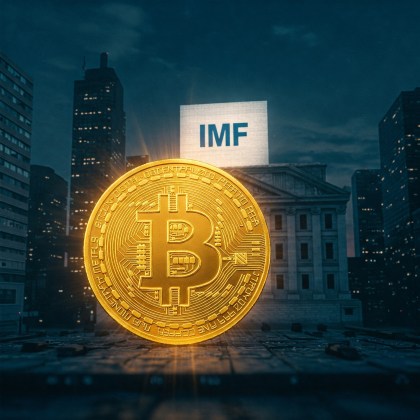The International Monetary Fund (IMF) has just dropped a major update, changing how the world tracks cryptocurrency. This means Bitcoin and other digital currencies are officially part of the global financial conversation.
A New Framework for Crypto
Over 160 countries worked together to create a new system for tracking crypto transactions. Previously, these trillions of dollars in transactions were largely unmonitored or inconsistently reported. This new framework plugs a huge gap in global financial reporting.
How the IMF Classifies Crypto
The IMF’s new guidelines give cryptocurrencies specific classifications:
- Bitcoin: Treated like land or natural resources – a non-produced, non-financial asset.
- Stablecoins (like Tether):
Classified as financial instruments.
- Crypto services (mining, staking): Categorized as computer services exports.
Governments and Crypto: A Mixed Bag

Some countries are already making big moves in the crypto space:
- The United States: Holds a substantial Bitcoin reserve (around 200,000 BTC), mostly from seized assets. Further sales are blocked by presidential order.
- El Salvador: Continues its Bitcoin strategy, holding over 6,125 BTC despite a recent IMF deal that technically restricts crypto transactions.
These national crypto reserves will now be tracked alongside other international asset purchases, bringing greater transparency to how countries manage digital assets.
Reactions and Implications
The crypto community’s reaction is mixed. Some see it as huge validation for Bitcoin, while others are more cautious. Max Keiser, a Bitcoin advisor, claimed the IMF recognized Bitcoin as “digital gold,” though the IMF itself didn’t explicitly state that.
Regardless of individual opinions, the new IMF rules are a big deal. Countries that use crypto extensively, like Nigeria (where over 35% of adults use or own crypto), will benefit most from clearer reporting methods.
While the IMF isn’t giving cryptocurrencies legal status, this is a massive step towards recognizing their importance in the global economy. Banks and governments now have a standardized way to track and report cross-border crypto transactions. The update clearly shows that crypto is becoming a significant part of the global financial system, even amidst ongoing debates about its future.





